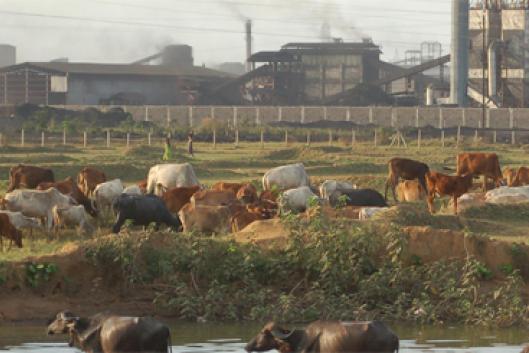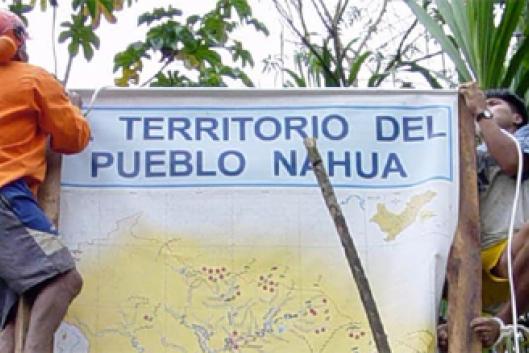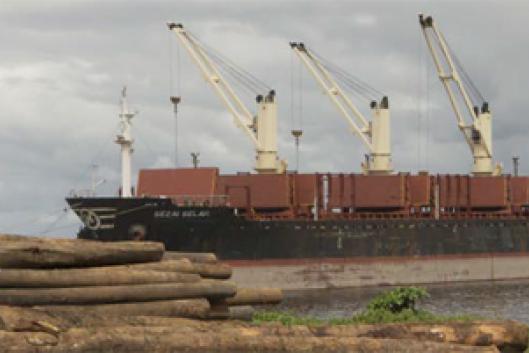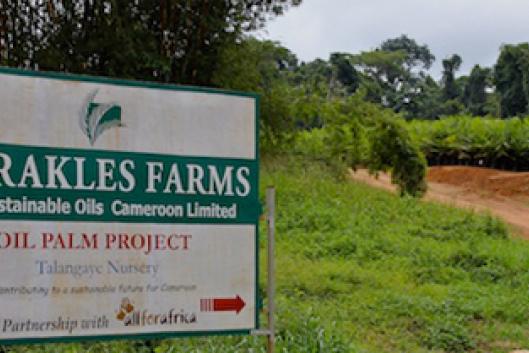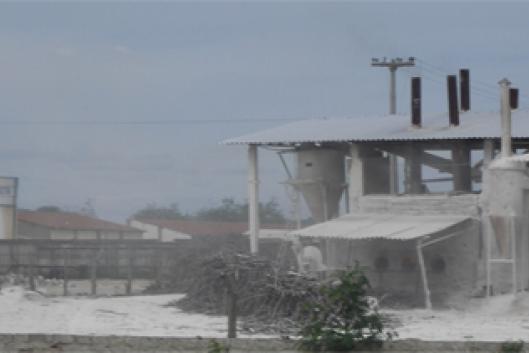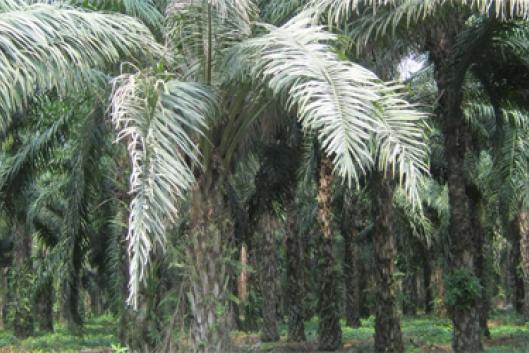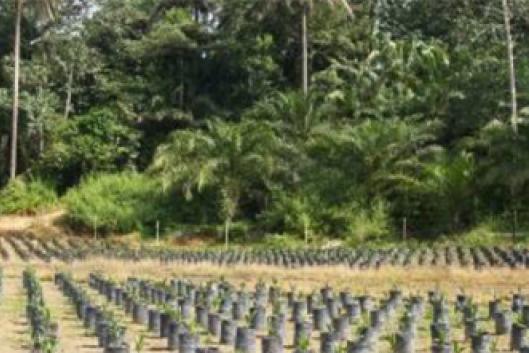The new “sustainable development” is called the “green economy”, which will function on the basis of “green growth”. Particularly since Rio+20, the UN and national governments have attempted to demonstrate to the world a renewed commitment to a policy of responsibility towards the environment and the future of the planet. Calling this policy “green”, a colour associated with nature, is a smart move. But will the “greenness” of this policy also extend to concern for diversity? And in the future, will the “green economy” also be a “biodiverse economy”?
Issue 190 – May 2013
OUR VIEWPOINT
COMMUNITIES AND FORESTS
-
30 May 2013The Peruvian Amazon, which covers more than 61% of the country’s territory, is the fourth largest area of tropical rainforest in the world. Thanks to this extensive forest cover, Peru also has an extremely high degree of biodiversity; for instance, it ranks in fifth place worldwide for plant diversity, with close to 25,000 recorded species.
-
30 May 2013Logging permits designed to promote small businesses and meet local needs are being allocated in their hundreds to industrial logging companies in Cameroon, the Democratic Republic of Congo (DRC), Ghana and Liberia.
-
30 May 2013In February 2013, the Rainforest Foundation UK launched a new report on plans for expansion of large scale oil palm plantations in the Congo Basin and the likely impacts on forests and local people from these developments. Megaprojects covering half a million hectares and involving different companies and countries in the Congo Basin are under way and will imply a fivefold increase of industrial oil palm monocultures in the region.
COMMUNITIES AND MONOCULTURE TREE PLANTATIONS
-
30 May 2013The Araripe Plateau, as an elevated region, plays a key role in maintaining the local microclimate and in the region’s water cycle. It could also be considered the source of biodiversity in the region known as Sertão do Araripe Pernambucano. It is in this very region that a public-private partnership is promoting monoculture eucalyptus plantations as a source of energy for gypsum production. The public agencies involved are the Agronomic Institute of Pernambuco (IPA) and the Rural Federal University of Pernambuco, with the support of the state and federal governments.
-
30 May 2013
Vietnamese land grabs in Cambodia and Laos for rubber plantations: secrecy, destruction and violence
The characteristics of natural rubber make it a competitive material for industrial and medical uses, but products related to transportation, tyres and tyre products, are by far the largest single end market for natural rubber: they account for over 50% of consumption. -
30 May 2013Industrial monoculture oil palm plantations have expanded significantly in Guatemala in recent years. One of the areas that has seen the greatest increase in these plantations is the municipality of Sayaxché, Petén, where companies have determined that the land is optimally suited for oil palm production.
-
30 May 2013A few corporations will concentrate control of more than 75% of the arable land in the Pujehun district for large-scale industrial agriculture, primarily oil palm plantations depriving local farming communities of their land and trees.
PEOPLES IN ACTION
-
30 May 2013Some 20,000 people participated in the 4th National March in Defence of the Land, Water and Life held on May 10, 2013 in Montevideo, Uruguay. The march was organized and promoted by some 40 organizations from around the country, in response to the growing concentration of ownership and foreign control of land in Uruguay, where 42% of arable land is currently under foreign ownership. At the same time, there has been continuous expansion of large-scale monoculture plantations in the country, with 1.5 million hectares of transgenic soybean plantations, a similar area of transgenic corn, and another 1.5 million hectares of pine and eucalyptus plantations.
-
30 May 2013From May 26-June 1, the International Tree Biotechnology 2013 Conference took place in Asheville, NC. This conference is a gathering of genetically engineered tree proponents and scientists. The Campaign to STOP GE Trees together with Join Earth First! and Global Justice Ecology Project had called to Resist the Tree Biotechnology 2013 Conference and carried out a week of resistance to genetically engineered trees. The protestors said that if legalized, GE trees would lead to the destruction of native forests and biodiversity in the US South, and be economically devastating to rural communities. After disrupting for 20 minutes a major presentation by Belgian tree engineer Wout Boerjan entitled, “Engineering trees for the biorefinery,” two Asheville residents were arrested.
-
30 May 2013On May 2, some 200 indigenous peoples, riverine communities and fishermen joined in a historic moment of unity and struggle for the Amazon and its peoples at the Pimental construction site of the Belo Monte dam where they continue to occupy the area. They demand that the Brazilian Federal Government clearly define the regulation of prior and informed consent of indigenous peoples and to immediately suspend all work and studies related to dams on the rivers where they live.The Brazilian government has repeatedly disrespected and assaulted traditional populations and has conducted studies on their lands without hearing them. Researchers carrying out the studies required for licensing were often accompanied by military troops, chariots of war and ammunition.
-
30 May 2013The Huaorani, the last known group of Indigenous peoples still living in voluntary isolation in Ecuador in the Amazonian area of Ecuador known as Yasuni National Park and Biosphere Reserve are threatened by encroaching oil development, settlers and illegal loggers. Now, some Huaorani of Yasuni, are developing new ways to enable their kin to remain living in voluntary isolation, protect the rainforest that is their home and source of life. They have launched a petition to Ecuador’s President demanding a legal title to their ancestral territory, and reforms to the laws of Ecuador to protect their land and their right to live as Huaorani.
-
30 May 2013In the continuum of brutal attacks on the struggle against forcible land acquisition for a POSCO steel plant in Odisha, India, the most recent case of repression has been the unlawful arrest of POSCO PratirodhSamgramSamiti (PPSS) leader AbhaySahoo from Bhubaneshwar airport by Odisha Police on 11th May. From 16th May 2013 onwards, a Odisha wide platform POSCO Pratirodh Jan SangharshManch (PPJSM) have started a demonstration for indefinite period demanding immediate scrapping of the project and release of PPSS leaders AbhaySahoo, LaxmanParamanik (victim of a bomb attack in early March), Promod Das and two others from jail
-
30 May 2013Tens of thousands of indigenous people from Sarawak, Malaysia, are threatened with forced displacement as the Sarawak government moves ahead with plans for 12 massive new dams. These dams will devastate the traditional homelands of native communities, drown pristine tropical habitat, and generate dangerous methane gas, a dangerous climate polluter. The SAVE-Rivers movement has launched a petition demanding that decision makers stop construction of these destructive dams and instead respect indigenous rights and find alternatives that reduce social and environmental impacts while still meeting Sarawak's energy needs.
-
30 May 2013Communities and International Redmanglar member organizations expressed their solidarity with the people and community of Cumbe, Ceará, while expressing its total rejection to criminalize actions that the community lives by the particular interests of the employer Rubens Gomes dos Santos, who has tried every means to revive illegally abandoned shrimp farm. Send your signatures of support and solidarity letters to email: luvitales@gmail.com http://www.redmanglarinternacional.org/sitio/index.php?option=com_ content&view=category& layout=blog&id=44&Itemid=71
RECOMMENDED
-
30 May 2013“An overview of industrial tree plantations in the global South: Conflicts, trends and resistance struggles”, EJOLT Report 3, has just been published in Bahasa Indonesia.http://www.wrm.org.uy/publications/EJOLTplantations_Bahasa.pdf
-
30 May 2013“Walking on Caves of Fire”, by Nnimmo Bassey, records his impressions of the level of impacts from mining in Witbank, Old Coronation mine and other Highveld communities from a field trip in Mpumalanga Province organised by Friends of the Earth South Africa as a prelude to Oilwatch Africa conference that was held in Midrand mid May 2013. http://nnimmo.blogspot.com/2013/05/walking-on-caves-of-fire.html
-
30 May 2013“Towards a Post-Oil Civilization. Yasunization and other initiatives to leave fossil fuels in the soil”. The EJOLT Report No. 6 traces the birth and growth of the idea of leaving oil in the ground. It also analyses the links between the proposal and the world movement in defense of indigenous peoples as well as discusses the financial aspects of the Yasuni ITT proposal, siding against ‘carbon trading’. http://www.ejolt.org/wordpress/wp-content/uploads/2013/05 /130520_EJOLT6_High2.pdf
-
30 May 2013“Genetically Engineered Trees and Bioenergy. A Growing Threat to Forests and Communities”, an updated briefing paper of the Global Justice Ecology Project analyzing the state of GE Trees and bioenergy http://globaljusticeecology.org/file/Analysis%20of%20the%20State%20o f%20GE%20Trees%20May%202013.pdf
-
30 May 2013"La ruina de la fractura hidráulica", a report by Ecologistas en Acción that exposes the truth about the extraction of unconventional gas through hydraulic fracturing or “fracking”.http://www.ecologistasenaccion.org/article25805.html

